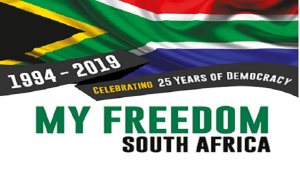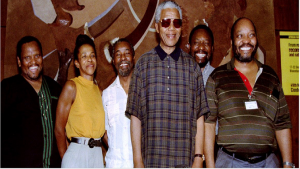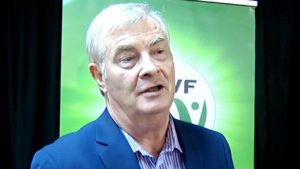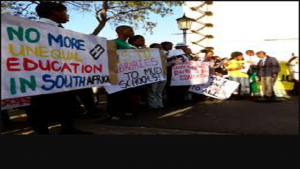This week 25 years ago, the Swiss government signed an agreement with South Africa pledging support for the country’s Reconstruction and Development Programme (RDP).
The programme was democratic South Africa’s first macro-economic policy aimed at transforming the economy and improving the lives of the Black majority who were at the receiving end of the country’s cruel policies of racial segregation.
Despite civil society’s previous concerns over its links with apartheid South Africa, the relationship between Switzerland and Pretoria is cordial.
Bern is one of South Africa’s main trading partners, while Pretoria is that country’s most important partner in trade, investment and economic co-operation on the continent.
In 2008, the two countries signed a memorandum of understanding on expanding cooperation in various spheres, including peace, security, human rights promotion, migration, as well as science and culture.
Political consultations between the countries have been taking place annually since then.
They are aimed at discussing ongoing and future cooperation.
Watch related video:
Supporting democracy
Following the advent of democracy – Bern immediately availed resources to assist Pretoria’s development projects.
Switzerland kicked off a project called Special Programme South Africa, focusing on land reform, education and good governance.
The initiative was scheduled to run from 1994 to 1999 but extended for another five years.
Various other agreements between the two countries were also entered into.
They included the Swiss-South African Cooperation Initiative, which supported projects by Non-Governmental Organisations (NGOs) to improve employment opportunities for previously disadvantaged groups.
The bilateral relations between the two countries first received a major boost in 1998 when Switzerland’s Former President Flavio Cotti embarked on a state visit to Pretoria.
The move led to the establishment of South Africa and Swiss Working Group, which sought to give practical effect to issues of interest to both countries.
The group is hailed as having enhanced the quality and content of South Africa and Switzerland’s bilateral relations.
Watch related video:
Apartheid legacy
Despite the strides made – concerns over Switzerland’s links with apartheid South Africa remain.
Although Bern adhered to UN arms and oil embargoes; claims to have limited capital investments and enforced punitive debt repayment schedules on apartheid South Africa – business with the regime continued to flourish between some within the Swiss political circles and the government.
Nine Swiss companies were among 23 international firms sued by apartheid victims for aiding and abetting the oppressive rule.
The lawsuit was launched in 2002 in the US under a 1789 law, which permitted foreigners to seek damages on American soil for human rights abuses committed overseas.
In 2008, the number of respondents was reduced to five and the law used to launch the class action was later changed.
The new legislation only makes provision for violations that happened in the US.
Watch related video:
Despite the cases having fallen through, General Motors clinched an out of court deal with the complainants in 2012.
The company agreed to give the victims R11,2 million worth of shares, saying the settlement was not an admission of guilt.
Government had initially opposed the lawsuit over fears it would discourage investment.
It, however, changed its stance after Jacob Zuma became South Africa’s Commander-In-Chief in 2009.






